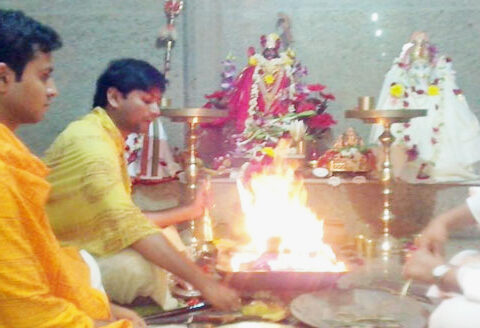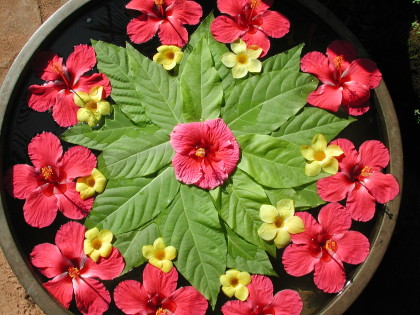Glossary – Teachings of Great Sages and Gurus of India

-
Pandit
~~~ Pandit refers to a Hindu who has memorized a substantial portion of the Vedas, along with the corresponding rhythms and melodies for chanting religious verses or singing them during prayers or rituals. In modern times it broadly refers to a scholar, an expert and authority in a certain field. [caption id="attachment_3303" align="aligncenter" width="480"] Pandit[/caption]
Pandit[/caption] -
Paramatman
The All-pervading All-Mighty Self. -
Pattabhirama
One of the names of Lord Rama. It means, "the king who wears the crown and revels in the mind". -
Pitris
The Pitris (Sanskrit: पितृ, the fathers), are the spirits of the departed ancestors in Hindu culture. They are often remembered annually. -
Prakriti
Nature. The primal matter with three different innate qualities (Guṇas:Qualities of Mind - Sattva:Good, Rajas:Passionate, Tamas:Dull) whose equilibrium is the basis of all observed empirical reality. -
Pranayama
~~~ Pranayama in Hindu Yoga is the regulation of breath through certain techniques and exercises. It is a conscious prolongation of inhalation, retention and exhalation. 'Prana' pronounced 'Praanaa' is the Life Energy, both individual and universal. If breath is controlled, mind is controlled and becomes quiet and vice versa. It is used as an aid to meditation, relaxation, calming the mind and general health. -
Prarabdha
~~~ Destiny to be worked out in this life, resulting from the balance sheet of actions in past lives.
-
Prasad
Blessing from God or Guru; the food or drink that is offered to the devotees after being used for worship of God. -
Purusha
Person; Man
 Pandit[/caption]
Pandit[/caption]
